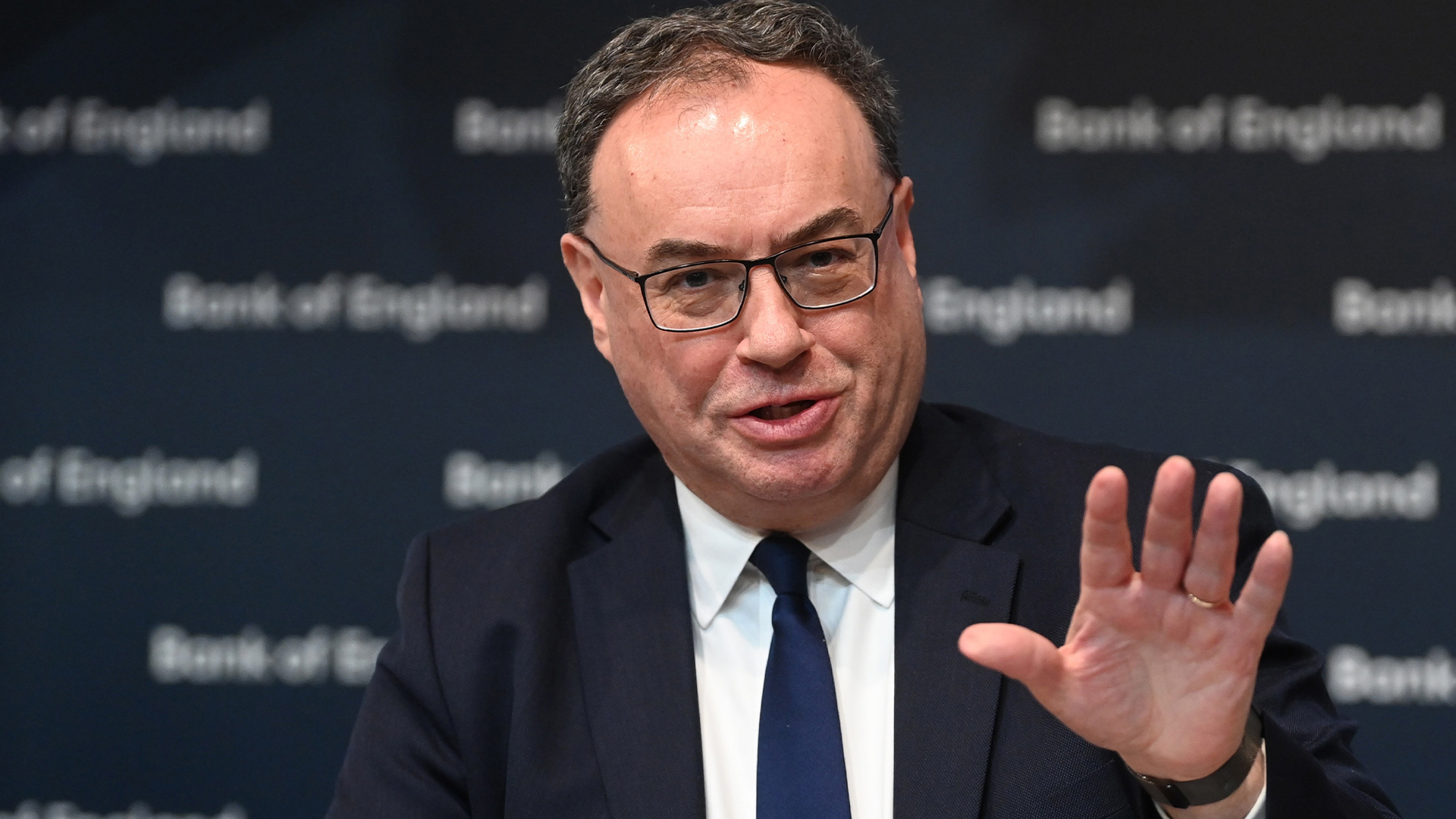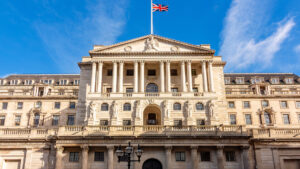The Bank of England (BoE) has warned that US President Trump’s tariffs have created uncertainty for the UK economy, complicating the BoE’s future interest rate decisions.
BoE Governor Andrew Bailey shared these concerns with UK parliament members, highlighting how trade disruptions could impact the economy and the BoE’s decisions.
Global Trade Disruptions and Impacts
Trump’s tariffs have created fear among businesses in the UK. Many companies are pausing their investments due to new fears of trade barriers. These delays could put a dent in economic growth, with investment being one of the key drivers in economic activity.
Andrew Bailey also highlighted the overall impact of international trade, as tariffs could lead to negative global growth. While the UK has agreed on a deal with the US, tariffs on other nations could remain a threat to the UK economy. ⁽¹⁾
Cautious Downward Path for Interest Rates
During the UK Parliament hearing, BoE Governor Bailey expressed that the UK’s rate path remains downward, but how far and how quickly they will cut rates remains unknown due to the uncertainty caused by trade tariffs. ⁽²⁾
Governor Bailey is still confident that inflation could move back down near the central bank’s 2% target, supporting more rate cuts. Last month the BoE cut its interest rate to 4.25% but has started to move at a more cautious pace. ⁽³⁾
Inflation Outlook
The effect of tariffs on prices is still not clear. Disruptions on supply chains might push prices higher, according to Bailey. ⁽⁴⁾
Weak consumption and a loosening labor market are encouraging for the BoE, as stated by BoE MPC Swati Dhingra. Dhingra voted for a larger reduction in rates last month, arguing that the central bank should move quickly to support the economy. ⁽⁵⁾
2 Different Views From MPCs
Two members of the MPC, Swati Dhingra and Catherine Mann appeared alongside Bailey and explained their voting decisions on interest rates.
Dhingra, a trade expert, who has repeatedly voted for lower rates than the MPC has set, said she was concerned that keeping rates high may be damaging the economy’s future capacity to grow. She suggested this could prompt her to support half-point cuts at future meetings. ⁽⁶⁾
In contrast, Catherine Mann warned that the BoE needs to remain vigilant over inflation. Mann, who voted to keep rates in place in May, said the uncertainty called for a “bold, activist, aggressive” approach to ensure inflation doesn’t drift from its target. ⁽⁷⁾
Volatile Markets
Governor Bailey also acknowledged that financial markets have been volatile in recent weeks as a result of rapidly changing US trade policy. Markets have moved quite a lot since the previous BoE meeting.
He also expressed concerns on falling equity markets, rising US bond yields and US Dollar depreciation, suggesting these factors led to changes in White House policies.
Looking Ahead
The BoE remains committed to lowering interest rates. Still, challenges arising from global economic uncertainty, particularly due to the impact of US trade policies, could continue to shape the BoE’s cautious approach to monetary policy.
The coming months will likely be crucial as the Bank of England monitors economic data and volatile markets to consider its next steps towards interest rates.



